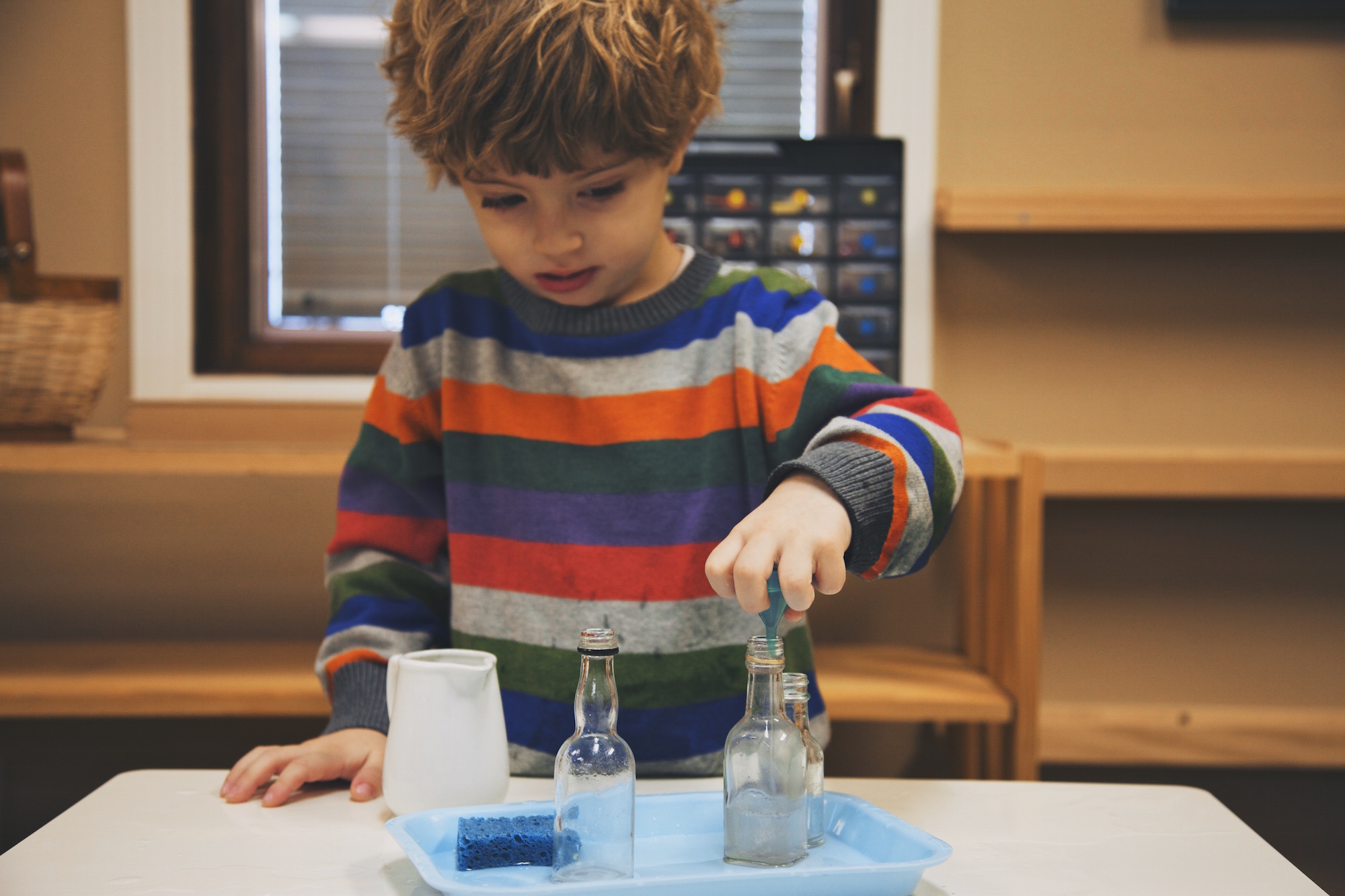The Nature of Perfection
Thoughts & Reflections
We have the extreme good fortune of having a directress that is as passionate outside the classroom as she is inside the classroom. Inspired to write on the nature of perfection, following our first parent education workshop of the year, Charlotte Wood presents her thoughts on the matter. You’re in for a treat, as Ms. Wood tackles this delicate topic, with precision and care.
_____
“As Montessori educators and as people interested in child development and family relations, we spend a considerable amount of time talking about concepts, phrases, and buzzwords in the ether, in popular media, and in Montessori culture. As is often the case with a subject as emotionally connected as our children and their future and well-being, we often come to a conversation with certain abstractions tied to a concept, and clarity is required in the dialogue to increase mutual understanding. One of these words we keep coming around to is perfection. We talk about it a lot as a staff at Baan Dek, it comes up with parents not infrequently (as was so gracefully demonstrated by a parent at our most recent education afternoon conversation on the topic of Practical Life), and it is another of those really challenging hurdles for bringing people who are not familiar with Montessori into the magic that we witness every day. It’s like “normalization” — what do we really mean by this fraught word?
It is a common anxiety of parents and prospective parents that their child might worry about being perfect. Mistakes happen, accidents happen, LEARNING happens, and all of this looks messy and less than perfect. Why do we have this expectation of children in a Montessori classroom to be perfect? Is it reasonable? Are we giving them complexes? What are we doing to our children?!
Even when I use perfect as an adjective, the verb to perfect is what sticks with me. I do want the children in my class to perfect their actions, for the satisfaction, for the pride, for the grace with which this means they can carry themselves. Perfect is a process, a learning that embraces mistakes and accidents and spills because they highlight what still can be honed. It is an internal drive to do things beautifully and with grace — the music beans make when they are poured exactly, not too quickly, not too slowly, from one pitcher to another. The internal autopilot that knows, when water spills, how to clean up a mess. The meticulous three-year-old who walks just precisely around their friend’s rug, because disrupting their work would just be, well, unthinkable! These are perfections! These are not “because I said so” moments; the child does not engage in these things because of fear of the teacher, to please the adult. The child does this because they are internally driven to do so, because they are intrinsically motivated to be masters of themselves, in every way.
Externally, perfect does have results. There is one way the Pink Tower goes on the shelf, but there are THOUSANDS of ways to build the Pink Tower perfectly, correctly, well. The way the child experiences the proper way to put this material together is by experimenting, by practicing, by getting it “wrong” many, many, many times. It is only then that the visual progression of change in three dimensions is so beautifully, exquisitely, perfectly highlighted. The Montessori materials are designed to be self-correcting; they call to the child to use them in the appropriate way — this is the Montessori principle we call “Control of Error”. This puts the child in charge of the learning experience, and anything we learn for ourselves we attach to in a stronger way. Error is what teaches us. As Ginni Sackett stated, “Error is my friend. Error give me the opportunity to go further than I thought I needed to go.” This Control of Error supports independence because it allows for self-correction. It allows the child to be their own teacher. It supports emergent reasoning and problem solving, it supports the child’s growing attention to detail. This Friendliness with Error is totally natural to the Montessori child.
Part of what makes it so difficult for adults to be comfortable with error and perfection is that, often, error, mistakes, mean “back to the drawing board,” or “we have to start over.” For the child, error means, “next time I can do better with that,” or “I’ve mastered these skills, now I can examine this.” Perfection plays a vital role in things like science and math (2+2 is always, exactly, perfectly 4), and, though the creative process of music and language can be messy and tumultuous, intervals in music are described as “perfect” — perfect 5ths — and everyone has read a phrase in a book that struck us as perfect. There are experiences, particularly in the fields of the arts, that are perfect not because they follow any scientific formula, or because they are “right,” but because they speak to you, what they emulate matches your perspective in this moment; a beautiful piece of art might not be your favorite because the artist never colored outside the lines, but because of the intensity of a color, because of the beauty of a line, because of the dedication of the artist. It is a detriment to our children to expect them to be perfect because we want them to be so, because they are in a world that asks them to be more than they are able or different than how they are made. But the child is surrounded by perfect things all day, in so many facts of their life. Who are we to take away this ownership of learning, this desire to perfect?”
Written by:
Baan Dek
